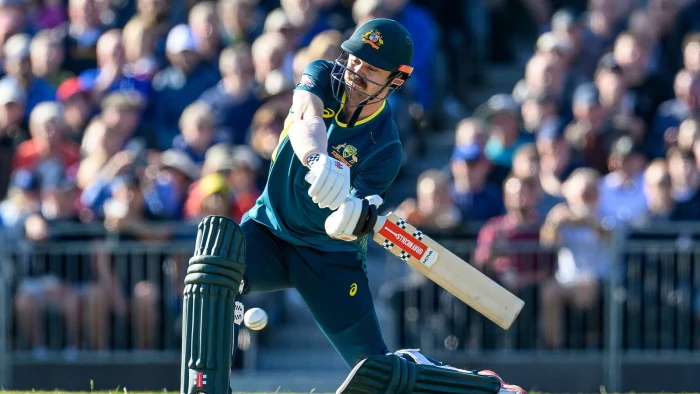16 conclusions from England's first Test win over New Zealand at Lord's

England's Joe Root hits the winning runs in first Test against New Zealand
A chaotic first Test between England and New Zealand, resulted in the hosts claiming what appears to be a comfortable five-wicket win. But the match was more complex than that as Dave Tickner reveals.
An unbeaten fourth-innings century from Joe Root steered England to a Test victory after only one win in their previous 17 matches. A miserable run which could have very easily continued had it not been for very ordinary batting by both teams.
New captain Ben Stokes and head coach Brendon McCullum were given a winning start to life in the hotseat, but only after wrestling victory from the jaws of defeat on several occassions. Planet Sport looks back at what we learned from the first Test at Lord's. If the next two Tests in the series are anything like this one we are in for a rollercoaster ride.
Root is still the boss
Nowhere else to start but with the most obvious yet important conclusion. Joe Root is an extraordinary cricketer and English batting would be utterly lost without him. It's still not great with him.
The second most important thing was the way Root spoke after the match, a man clearly relishing the freedom to just concentrate on batting and winning games for Ben Stokes the way Ben Stokes won matches for him.
All the concerns about the strain captaincy put on Root apply just as much to Stokes - a man whose workload exceeds Root's and who is just as vital to the team - but releasing Root to just bat could lead to even greater returns from England's finest batter.
Given this was his ninth Test hundred since the start of last year, that is quite a thought
Root's amazing stats
Let's have a run through of those other Root stats, though, because let's not pretend we don't all love them.
Needing exactly 100 runs to reach 10000 left an air of inevitability about what would happen next but those headline numbers weren't the only memorable ones.
A first hundred in the fourth innings is a notable achievement, because as we all know the best hundreds are first-innings ones that set the game up or fourth-innings ones that win it with anything in between absolute tish and fipsy.
Reaching 10,000 runs at precisely the same age as Sir Alastair Cook was also good fun until nerdy spoilsports pointed out that leap years mean Root is actually one day older than his predecessor as England captain and soon to be predecessor as England's leading Test run-scorer.
On January 13 last year, Steve Smith and Virat Kohli each had 27 Test centuries with Kane Williamson on 24 and Root lagging behind on 17.
Seventeen months later, Smith and Kohli are still on 27, Williamson is still on 24 and Root now has 26.
Joe Root joins the game's greatest ✨ pic.twitter.com/jD6LYAZHza
— ESPNcricinfo (@ESPNcricinfo) June 5, 2022
Fourth-innings timings
England's fourth-innings run chase was a superb example of pacing and timing. Of moments identified and seized.
Root and his captain came together with the chase in disarray and had to initially rebuild. Stokes then launched a counter-attack, with Ajaz Patel's brief spell shifting the whole mood of the chase.
When Stokes was dismissed, Root took on the mantle. At the moment of Stokes' seemingly decisive departure, Root had 34 runs from 89 balls. He scored another 81 at exactly a run a ball.
Even Ben Foakes, who enjoyed a superb all-round game having kept near-flawlessly at one of the world's toughest keeping grounds due to the weird and as far as we know unexplained "Lord's wobble" that makes the ball do odd things after it passes the bat, accelerated on the fourth morning.
Crucially, those gambles - even in the end the briefer contributions of Alex Lees and Jonny Bairstow - took the second new ball away from New Zealand. It felt like an early hint of Brendon McCullum's influence. Calculated gambles, but gambles nonetheless; given two options, always choosing the aggressive one.
Foakes stepped up
That said, it looks like there will also be times when McCullum will need talking down from plans that are actually insane, like his apparent scheme to send in Stuart Broad rather than Foakes when Stokes was dismissed.
Now the desire to watch Broad bat is understandable and correct, but in a tense run-chase alongside a set elite batter we would nearly always say it would be better to go with someone who can actually bat if that option exists.
Maybe the sheer disrespect of it is what inspired Foakes to help steer England home so calmly. Maybe McCullum is even more of a genius than we're told he is. Either way, this was an important performance with bat and gloves for Foakes, who came into the summer under some pressure after a nondescript West Indies tour.
Fourth morning calm
The calmness of that fourth morning was one of the most eye-catching elements of England's win.
Even having dragged themselves back into the game on the third day a chase of 61 more runs with four number 11s remaining to bat still looked potentially daunting.
Even more so when one considers that England batters on a decent overnight score almost never, ever score any more runs the next day.
? @MCCOfficial Members in the Pavilion show their appreciation for Ben Foakes & @root66's match-winning partnership.#LoveLords | #ENGvNZ pic.twitter.com/LW9r95c7v4
— Lord's Cricket Ground (@HomeOfCricket) June 5, 2022
Third day ball change
That appeared to be at least in part to a catastrophic decision from New Zealand to ask for the ball to be changed on the third evening. While the original ball may have gone out of shape and/or soft, it was still swinging around and making life difficult.
The replacement did nothing and if it was slightly harder as well would go some way to explaining the increase in Root's scoring rate on the third evening and Foakes' on the fourth morning.
De Grandhomme antihero
It's not the first time that a game between England and New Zealand has been settled by fine margins.
Five wickets may appear a comfortable win for the hosts, but given the batting to come it was anything but and the whole game could have gone very differently had certain pivot points gone the other way.
Colin De Grandhomme's first-innings efforts with bat and then ball were huge for keeping New Zealand in the game, but his second-innings woes went a long way to costing them the win.
His first-ball run out was irredeemably dozy, as was overstepping when bowling at 75mph and seemingly dismissing Stokes for just a single. The heel injury that followed soon after was hardly his fault, but left Kane Williamson with only three bowlers he could trust and with a huge headache.
New Zealand selection error
And that in turn highlights another key moment where New Zealand got it wrong: selection.
That Patel was trusted with only two overs in the second innings even after De Grandhomme's injury was a tacit acknowledgement from New Zealand that they got it badly wrong in not having Neil Wagner alongside Southee, Boult and Jamieson.
Stokes deserves credit for the way he sensed and grabbed the moment to take Patel down, but "always pick a spinner" is only an accurate truism if you're going to back him and bowl him. Otherwise you're just doing The Right Thing for the sake of it and playing with 10 or even, as it ended up, nine.
The substitute conundrum
Talking of playing with 10, the concussion rule has brought the thorny issue of substitutes in Test cricket back into focus. Allowing full subs for those suffering concussion is good and correct, but creates a two-stream system of injuries.
England were on the wrong end of it in the 2019 Ashes: James Anderson's injury on the first morning at Edgbaston left them playing the rest of the game with 10. In the next Test, Australia were able to play with 12 as Marnus Labuschagne stepped in for Steve Smith.
Here, England were the beneficiaries and it felt even more galling given the unfortunate Jack Leach's unfortunate injury was self-inflicted by an ill-judged if successful attempt to save a run on the boundary.
That England were allowed a full replacement for that while New Zealand had no recourse after De Grandhomme's departure doesn't quite sit right.
As for a solution, there probably isn't a perfect one. Especially for touring sides who won't always be able to have a replacement drive down the country at short notice and 'like for like' will always be open to interpretation that might leave wriggle room to correct errors made in selection rather than just replace an injured member of the team.
But it seems unlikely the current halfway house solution can hold indefinitely now concussion has allowed the substitution Rubicon to be crossed.
Relying on the old guard
This was a hugely important victory for England, obviously, but there are caveats.
The batting remains hugely reliant on Stokes and especially Root, while the damage was done with the ball by three right-arm seamers, two of whom are all-time greats.
They may have defied time yet again to earn recalls after absurdly being left out in the West Indies, but at some point - even if it seems unlikely now - they are going to have to be properly and permanently replaced.
James Anderson is a nonsense, he really is. He made his Test debut before Andrew Strauss, who played 100 Tests and has been retired for a decade.
Yet here Anderson still is, and still showing absolutely no sign of losing his touch. He started off England's new era with a stunning new-ball spell and continues to set unreachable totals for seam bowlers.
The only quick to reach 600 Test wickets is about to become the only one to reach 650 Test wickets and 700 is still ludicrously possible.
Matty Potts to the rescue?
Catches win matches
Early team announcement mystery
New Zealand still deserve praise
Batting witchcraft
I knew @root66 was talented but not as magic as this……. What is this sorcery? @SkyCricket #ENGvNZ ? pic.twitter.com/yXdhlb1VcF
— Ben Joseph (@Ben_Howitt) June 5, 2022






